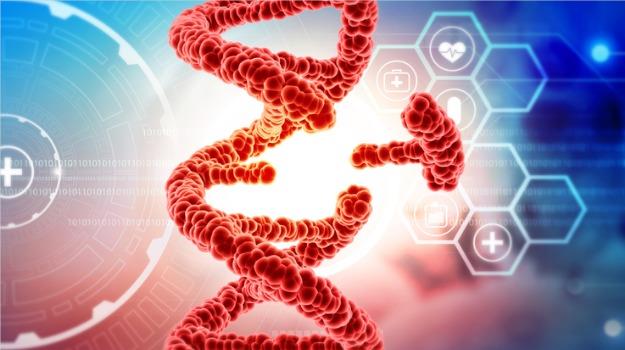
The Massachusetts-based biotech is testing BEAM-201 in relapsed or refractory T-cell acute lymphoblastic leukemia/T-cell lymphoblastic lymphoma (T-ALL/T-LL), a typically challenging cancer to treat with limited treatment options, and for which allogeneic CAR-T therapies could make a “substantial impact,” Beam CEO John Evans said in a statement.
“We believe that the full therapeutic potential of CAR-T therapies, including the ability to utilize an allogeneic source of T cells, will only be unlocked through higher levels of cellular engineering enabled by multiple simultaneous genetic edits,” Evans said in Tuesday’s announcement, noting that the company’s base editing approach is “well-suited” for this application.
Base editing is an emerging precision medicine approach that works by precisely triggering mutations at a single nucleotide base. Unlike typical gene editing therapies, base editors do not introduce double-stranded breaks into the DNA, which lets them avoid unintended off-target effects associated with other gene therapies including induced mutations at other loci, which can lead to safety concerns and toxicities.
Beam’s base editors follow this principle and chemically transform one nucleotide base into another. BEAM-201 makes use of multiplex base editing to simultaneously silence several genes in a donor-derived T-cell, thereby producing a CAR-T therapy that is universally compatible and that can sidestep host rejection and immunosuppression.
Despite its huge clinical potential, the base editing approach has run into several regulatory roadblocks. In July 2022, the FDA put BEAM-201 under clinical hold and in a subsequent SEC filing the company revealed that this regulatory pause was due to the need for additional control data from the candidate’s genomic rearrangement studies. The FDA had also requested further analyses of BEAM-201’s off-target editing experiments.
The regulator released the clinical hold in December 2022 after Beam successfully addressed the FDA’s concerns.
Fellow Massachusetts biotech Verve Therapeutics also ran into an FDA pause in November 2022, when its investigational editor VERVE-101 was put on clinical hold. A month later, the regulator asked for more data on the candidate, which Verve is developing for heterozygous familial hypercholesterolemia. Trials in New Zealand and the U.K. are ongoing.

Check out our AAV CDMO service to expedite your gene therapy research
PackGene is a CRO & CDMO technology company that specializes in packaging recombinant adeno-associated virus (rAAV) vectors. Since its establishment in 2014, PackGene has been a leader in the AAV vector CRO service field, providing tens of thousands of custom batches of AAV samples to customers in over 20 countries. PackGene offers a one-stop CMC solution for the early development, pre-clinical development, clinical trials, and drug approval of rAAV vector drugs for cell and gene therapy (CGT) companies that is fast, cost-effective, high-quality, and scalable. Additionally, the company provides compliant services for the GMP-scale production of AAVs and plasmids for pharmaceutical companies, utilizing five technology platforms, including the π-Alpha™ 293 cell AAV high-yield platform and the π-Omega™ plasmid high-yield platform. PackGene’s mission is to make gene therapy affordable and accelerate the launch of innovative gene drugs. The company aims to simplify the challenging aspects of gene therapy development and industrialization processes and provide stable, efficient, and economical rAAV Fast Services to accelerate gene and cell therapy development efforts from discovery phase to commercialization.
Related News
[2024/12/20] Gene and Cell Therapy- weekly digest from PackGene
FeaturedNewsArticlesPackGene's NewsletterReceive the latest news and insights to your inbox.About PackGenePackGene Biotech is a world-leading CRO and CDMO, excelling in AAV vectors, mRNA, plasmid DNA, and lentiviral vector solutions. Our comprehensive offerings span...
Sangamo and Astellas Collaborate to Advance Neurological Gene Therapies Using AAV Capsid Technology
Sangamo Therapeutics, Inc. (Nasdaq: SGMO), a leader in genomic medicine, and Astellas Pharma Inc. (TSE: 4503), a global innovator in life sciences, have partnered under a new license agreement. This collaboration centers around Sangamo’s cutting-edge neurotropic AAV...
Inceptor Bio and GRIT Bio Announce Strategic Partnership to Advance IB-T101, a Next-Generation Solid Tumor CAR-T Utilizing the OUTLAST™ Platform
SHANGHAI and MORRISVILLE, N.C., Dec. 18, 2024 /PRNewswire/ -- Inceptor Bio, a leading innovator in cell therapy, and GRIT Bio, a clinical-stage immunotherapy developer, today announced a strategic partnership to advance IB-T101, a potentially best-in-class CAR-T...
Proof-of-concept study bioengineers therapeutics for improved cancer treatment
Credit: Pixabay/CC0 Public DomainA team of Children's Medical Research Institute (CMRI) scientists has identified a new method for producing a therapeutic product that has the potential to improve the treatment of cancer. The work by Associate Professor Leszek...
Related Services

Plasmids GMP Services
Multiple scales & grade of solutions of various kind of plasmids suitable for multiple treatments in a fast and cost effective way.
READ MORE

AAV GMP Services
Ranging from small-scale AAV production, to large-scale AAV cGMP manufacturing for animal studies.
READ MORE

Technology Platforms
PackGene’s proprietary π-Alpha™ 293 AAV High-yield Platform increases AAV production by 3 to 8 times that of traditional platforms.
READ MORE

